
Ethiopia: Civil Society & Inclusive Governance
We support civil society to play a key role in social, economic, and democratic development in our target countries. We provide opportunities for civil society actors to develop the technical skills and mechanisms to become more effective governance and development actors.
We support civil society to engage with government actors to advance participatory democratic processes and develop inclusive public services. Specifically, our work targets a range of civil society actors, including youth and those representing marginalised communities, to ensure that government policies and services represent their needs. In parallel, we promote active citizenship, empowering individuals to exercise their rights, engage in democratic processes, and hold government officials accountable.
In its Ethiopian social programme, People in Need focuses on two vulnerable groups – women and children. Ethiopia has a major problem with child trafficking from poor families, with many cases where children end up in a slave market instead of at a school desk. They are exposed to arduous work and domestic and sexual violence. People in Need’s programmes are trying to better their situation by improving their education via collaboration with communities, police, judges and other parts of society.
Past aid programmes
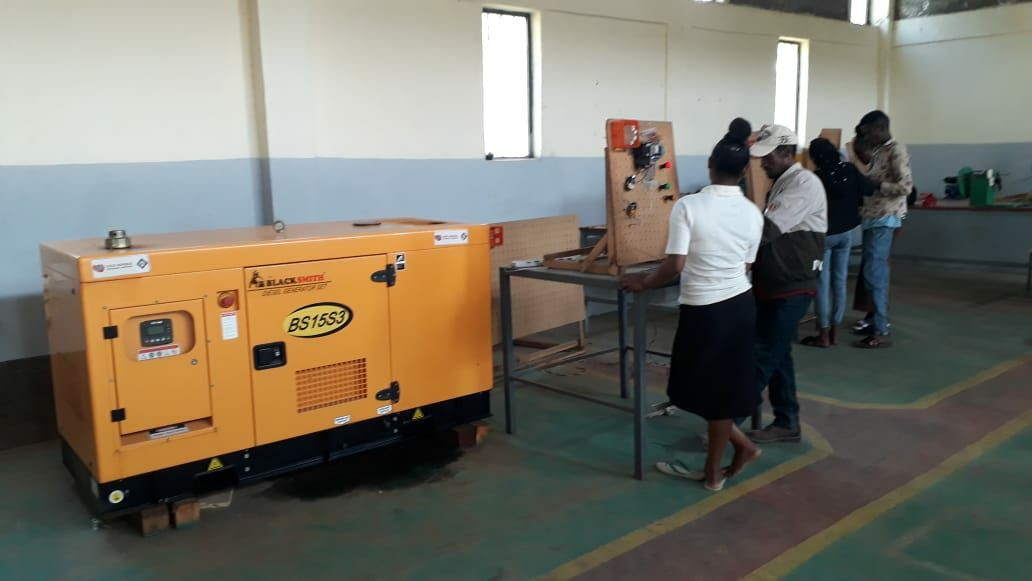
Promoting employment opportunities in the WASH sector through quality vocational training in selected areas of SNNPR and Oromia, Ethiopia
Only 65% of households in Ethiopia have access to improved water sources and those that do often face a range of water supply problems. It has been estimated that 33% of rural water supply schemes in Ethiopia are non-functional at any time. Furthermore, many water delivery schemes depend on technically demanding components and require complex technology, skilled experts for operation and maintenance, tariffing systems, and strong financial management.
Currently, targeted communities in four rural areas of SNNPR and the Oromia region are affected by the scarcity of safe and adequate water supply schemes. Thanks to the project funded by the Czech Development Agency, we are contributing to water system management and increasing employment opportunities for youth in the electromechanical sector through building capacities of formal education (TVET) and service providers. We are also benefiting from a long-lasting experience in the Education and Water, Sanitation, and Hygiene (WASH) sectors in Ethiopia, allowing us to target activities more effectively. We cooperate with 4 TVET schools and institutes that are providing technical and vocational training in the electromechanical field to ensure a qualified workforce and service providers will be capable of maintaining and repairing water sources in case of any difficulties. Courses will also be provided to technicians and managers of selected woreda water offices to increase the sustainability and quality of water provision to the community.
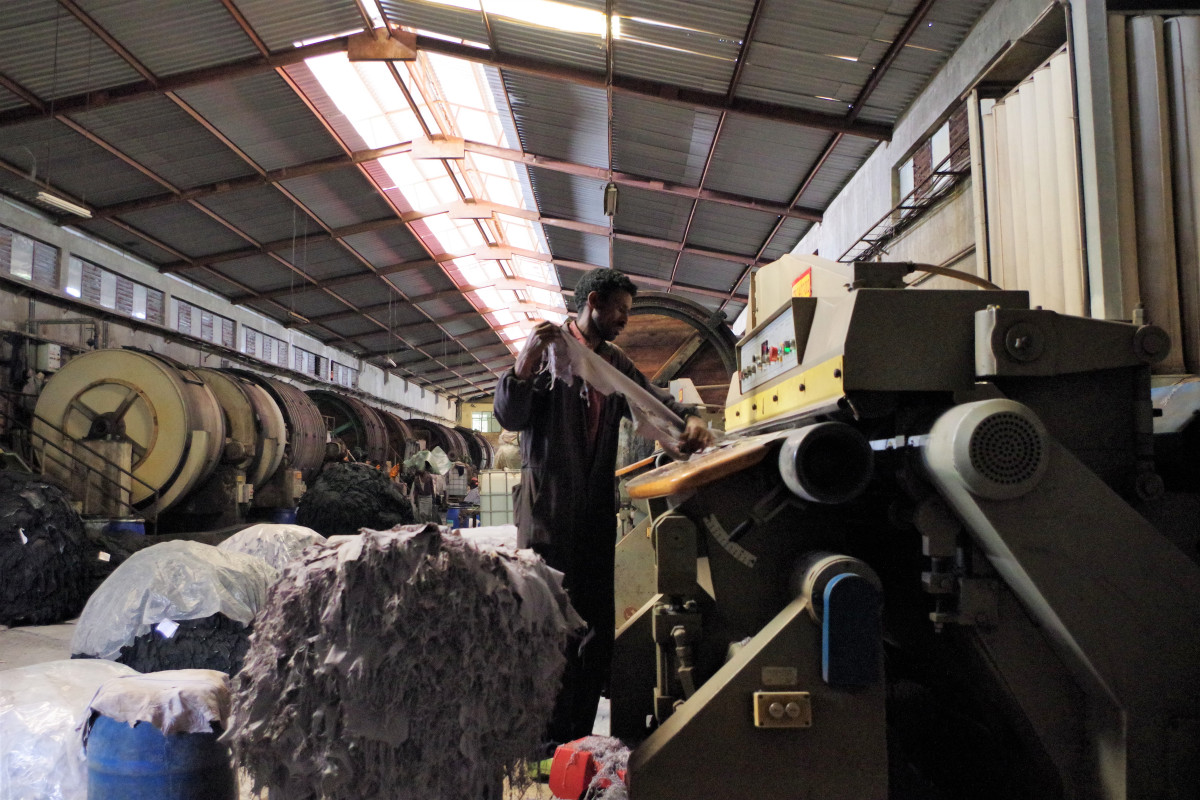
LISEC - Green Jobs in Leather Sector in Modjo
The Modjo region has long been facing two critical challenges: high unemployment rates and inadequate waste management practices by local tanneries. In response, PIN with partner organizations Solidaridad and IRC, are supporting local economic and social development initiatives. Project focuses on bridging the gender gap and empowering young people and women, who face significant barriers in accessing the job market (ie. Discrimination in hiring process, wage disparities). The project also targets actors within the leather industry, working towards enhancing their understanding of environmentally responsible production and waste management practices. Thanks to public and private sector actors, vocational technical schools (TVET), and other stakeholders will be possible to share experiences and create professional contacts between potential employers and school students. Part of networking is the creation of a dedicated job platform. Additionally, by improving production processes, tanneries will be forced to handle untreated waste management effectively and thus, contribute to the protection of the environment in Modjo from water, soil and air pollution.
Through the project 3,000 young people and women will improve their skills and gain better access to the labor market. By adopting new technologies and sustainable practices, multiple tanneries will contribute to creating an environmentally safe and responsible industry. Moreover, the project's comprehensive approach fosters equality, strengthens social cohesion, and promotes a more inclusive and sustainable future for all members of society.
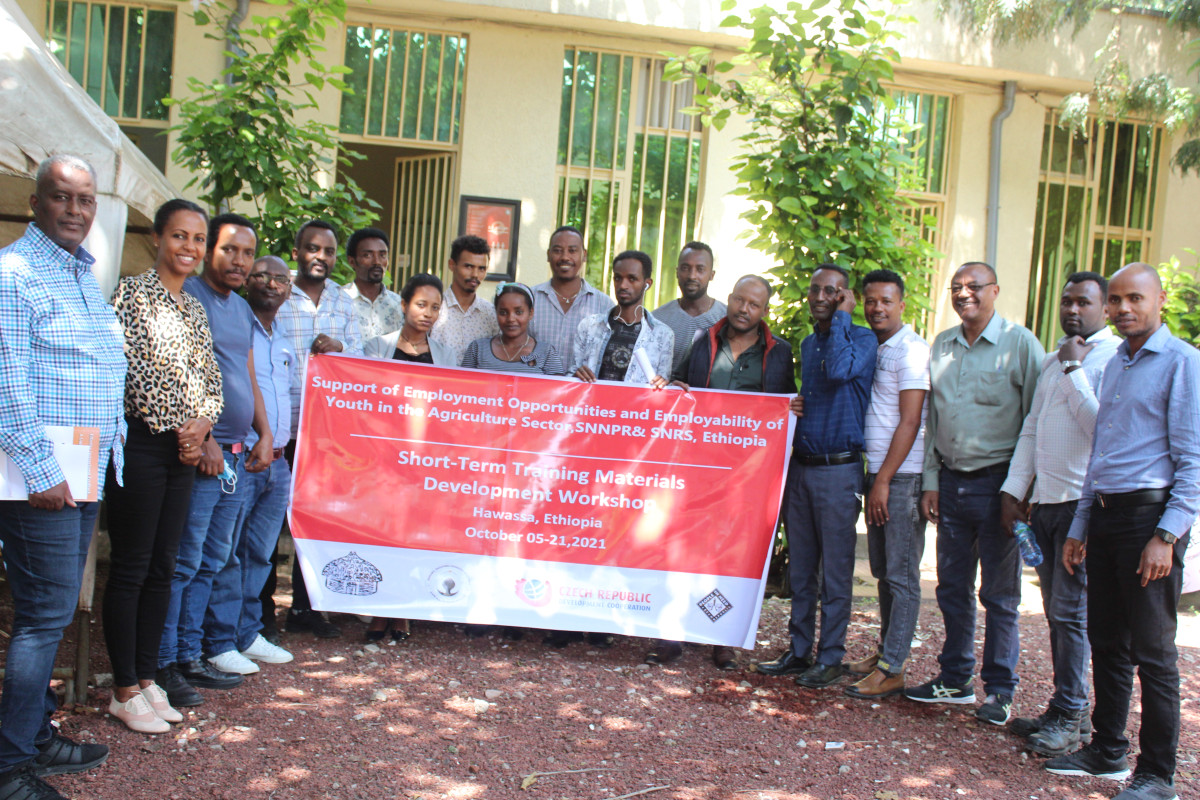
Support of employment opportunities and employability of youth in the agriculture sector
Although Ethiopia is one of the world's fastest non-oil growing economies, its success depends primarily on exports and the agricultural sector. However, agriculture has long been exposed to natural disasters associated with climate change. Unprecedented frequent droughts alternating with torrential rains and floods, which, together with population growth, puts extreme pressure on agricultural land. Population growth has, among other things, an impact on the labor market. Even though some sectors have offered more job opportunities in recent years, the market is not able to provide a reasonable offer to young people. It is similarly difficult for women in cities to enter the labor market.
People in Need cooperates with selected TVET schools to make the labor market accessible to their students and at the same time creating an environment for mutual sharing within the agricultural processing industry. It focuses on improving the curriculum, including practical teaching in the schedule and training staff in pedagogical methods. We coordinate dialogue between schools and the private sector, thanks to which graduates will be better equipped with technical knowledge and skills that will help them find employment in the agricultural processing sector. The involvement of
the public sector, job counseling centers, and the private sector, including small businesses and farmers, will facilitate communication between all actors, enable the sharing of experiences, and the creation of connections, thanks to which schools can respond more effectively to labor demand. TVET students will be trained in creating a professional CV, preparing for an interview, and setting their career plans. Small businesses will improve their managerial and financial knowledge. The project responded quickly to measures related to the spread of the Covid-19 pandemic, an information campaign was integrated into our activities, focusing on good hygiene practices, distribution of protective equipment, and installation of drinking water sources in remote areas.
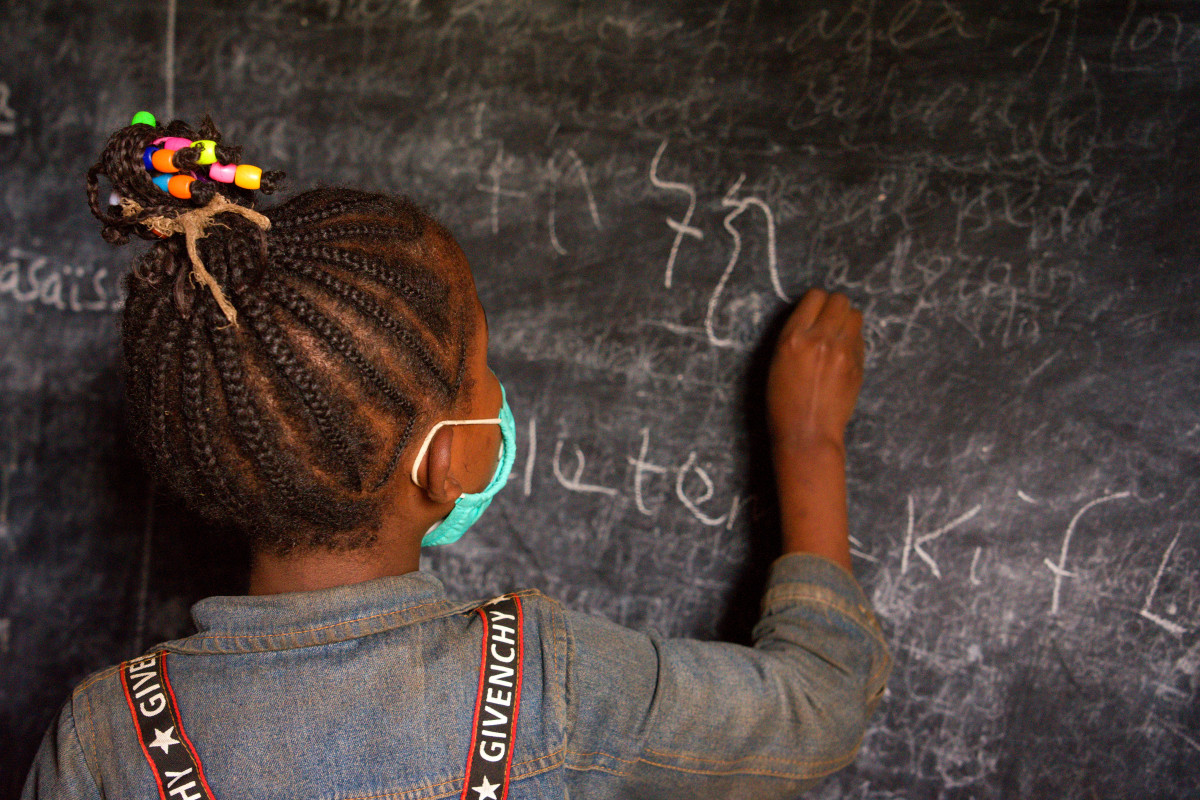
CHANGE: Improving access to education for marginalised girls in Ethiopia
PIN, together with its partners from Alliance 2015, has been working for several years to improve education in Ethiopia, where access to education is very limited, especially for girls in rural remote areas. In 2017, more than 40 % of girls in Ethiopia were married before the age of 18. Child marriage, work, household chores, and the family pressure, are one of the most common causes of primary education dropouts. Nonetheless, education is an important driver of the process of modernization and development of the country.
We have made significant progress in promoting girls' education and empowerment. This includes enrolling over 24,000 marginalized girls in education programs, establishing learning centers, facilitating transitions to formal schooling and vocational training, and providing support through self-help groups and medical assistance. Information campaigns, awareness-raising and discussions are focusing on wider communities led by religious leaders. The involvement of boys and parents is crucial to create a safe environment where marginalized girls can actively stand for themselves. Teachers are regurarly trained in new teaching methods and inclusive equal approach to their students, so that they are able to sensitively lead the class or identify barriers that limit students learning potential. Within girls' clubs, girls motivate each other and strengthen their role in society. In addition to ensuring a safe environment, the project also focuses on the overall reconstruction, material equipment of classrooms and the improvement of hygienic conditions in schools.
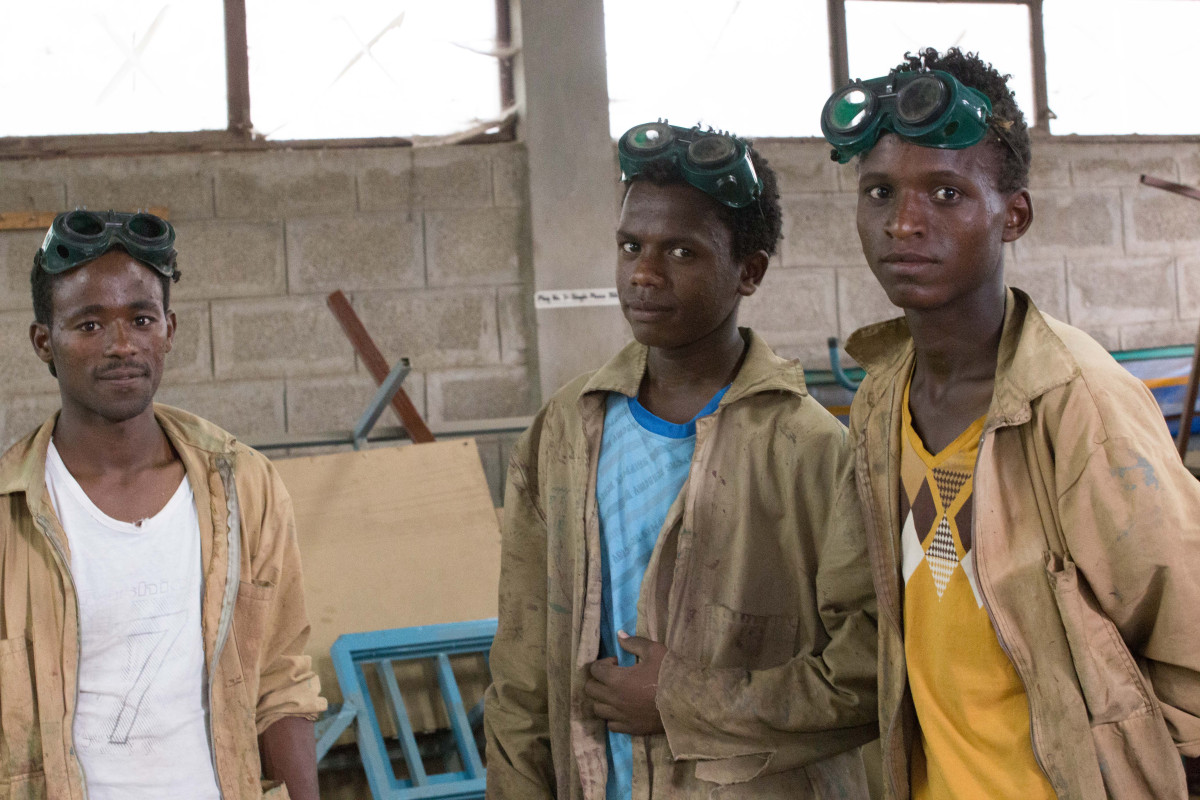
Impoving access to the employment opportunities in Addis Abeba
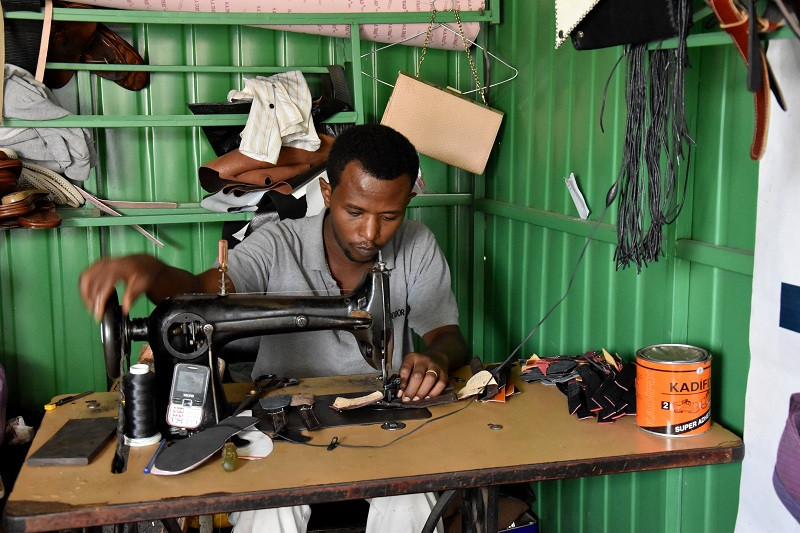
Enhancing Employability of Young People in Leather Sector via Quality Improvement of Vocational Education
The project supports two educational institutions in Wolayta and Gedeo Zones (Soddo Polytechnic College a Dilla TVET College). The curriculums of these two colleges will be adjusted and the teachers will be provided with trainings focusing on teaching people with disabilities. They can also make use of experience sharing sessions on this subject. Thanks to the project funds, classrooms of the two educational institutions will be equipped with the new machineries to provide quality education complying with Ethiopian standards and meeting needs of people with disabilities.
The support of micro and small enterprises aims to enable the entrepreneurs to gain necessary skills and experience and to increase their chances to access a loan offered by local micro financing institutions, for example. Networking between the successful businesses and the educational institutions as well as the micro enterprises is essential as it enables the students and the small entrepreneurs to gain access to materials and placement opportunities.
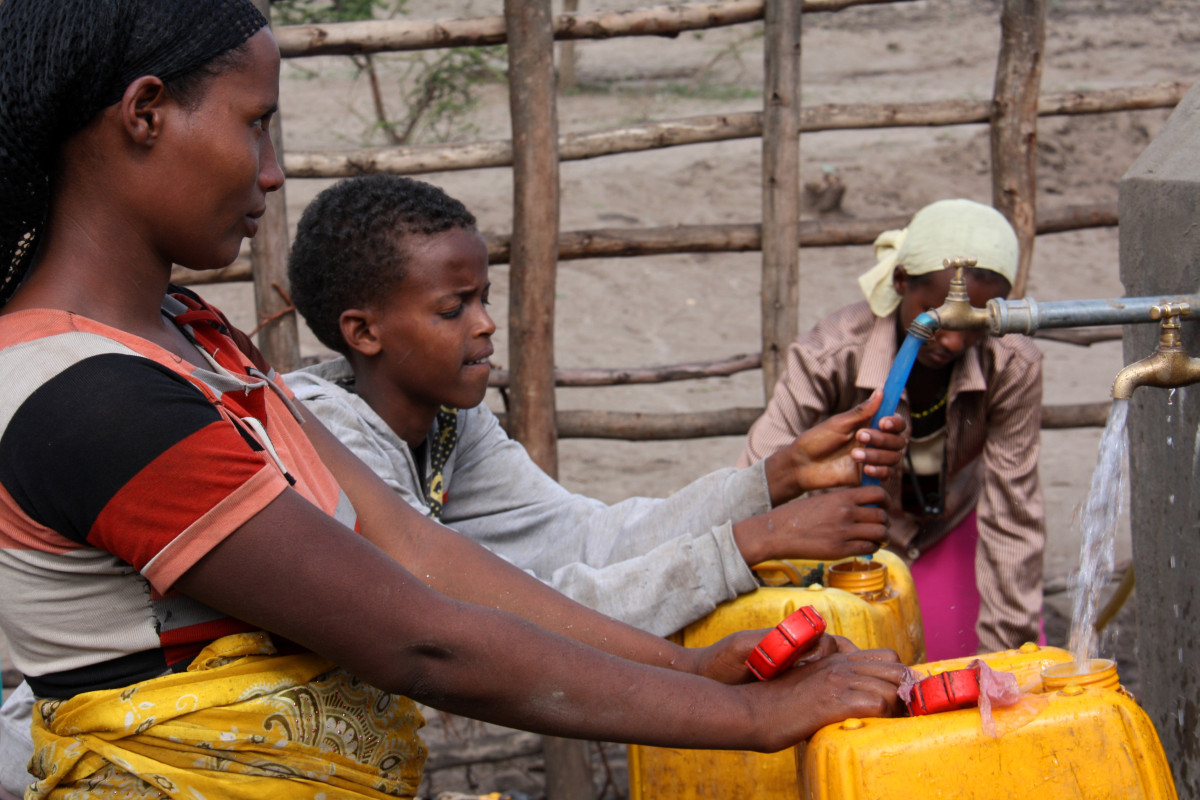
Improved Management of Water Schemes
In previous years, People in Need in the Alaba District implemented a project ensuring sustainable access to drinking water, by repairing non-functioning sources (deep wells) and building new resources. Since the most serious obstacle towards repairing potential malfunctions in this area is particularly lengthy or broken communication between water operators and water offices, an electronic fault record system has been already introduced in the area within the previous project. Officials, thanks to simple software, receive malware information instantly through SMS messages sent to water operators and therefore they can immediately react to shortcomings.
The project has so far strengthened the capacity of the TVET schools, Woreda Water Office and local water associations, addressed the problem of high fluoride level in the underground water (building of defluorization stations) and also focused on the inventory of water sources, thus to create a technical database on individual water sources.
Currently, our goal is to extend knowledge and capacities to four additional TVET schools in Sidama, Wolaita, Hadyia and Gamogofa.
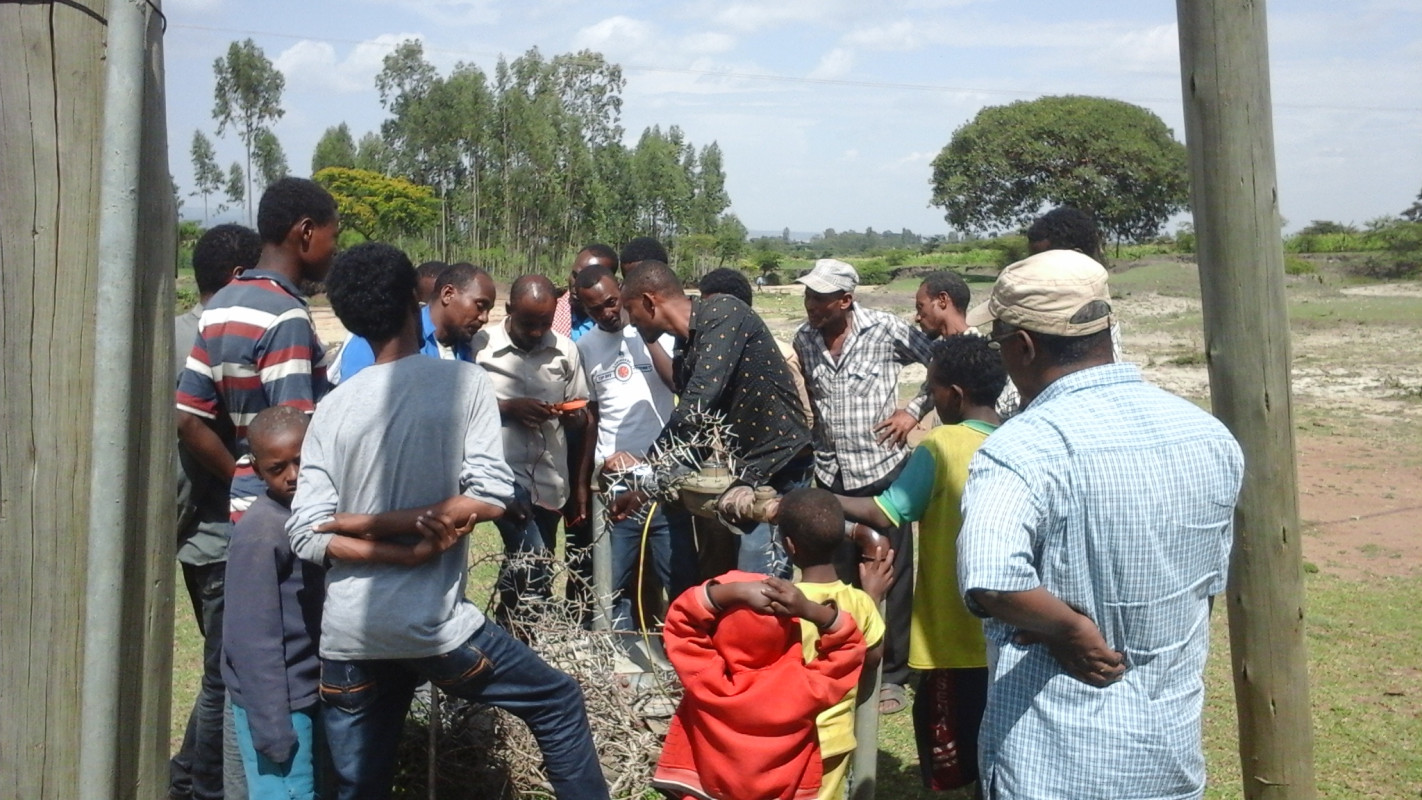
Improvement of Vocational Education in the Field of Water Scheme Management
The project therefore aims at improving the quality of vocational education at this college, especially the Electro-mechanic course. Renovation and modernization of the classrooms as well as new equipment for training and provided trainings for trainers improve quality of education at the Hawassa Polytechnic College. The project also focuses on experience sharing between the college and the technical staff of the water sector at district/woreda levels.
Next to the inclusion of practical experience into the curriculum, the emphasis is placed on addressing skill gaps of the technicians of water schemes at both the woreda and community levels.
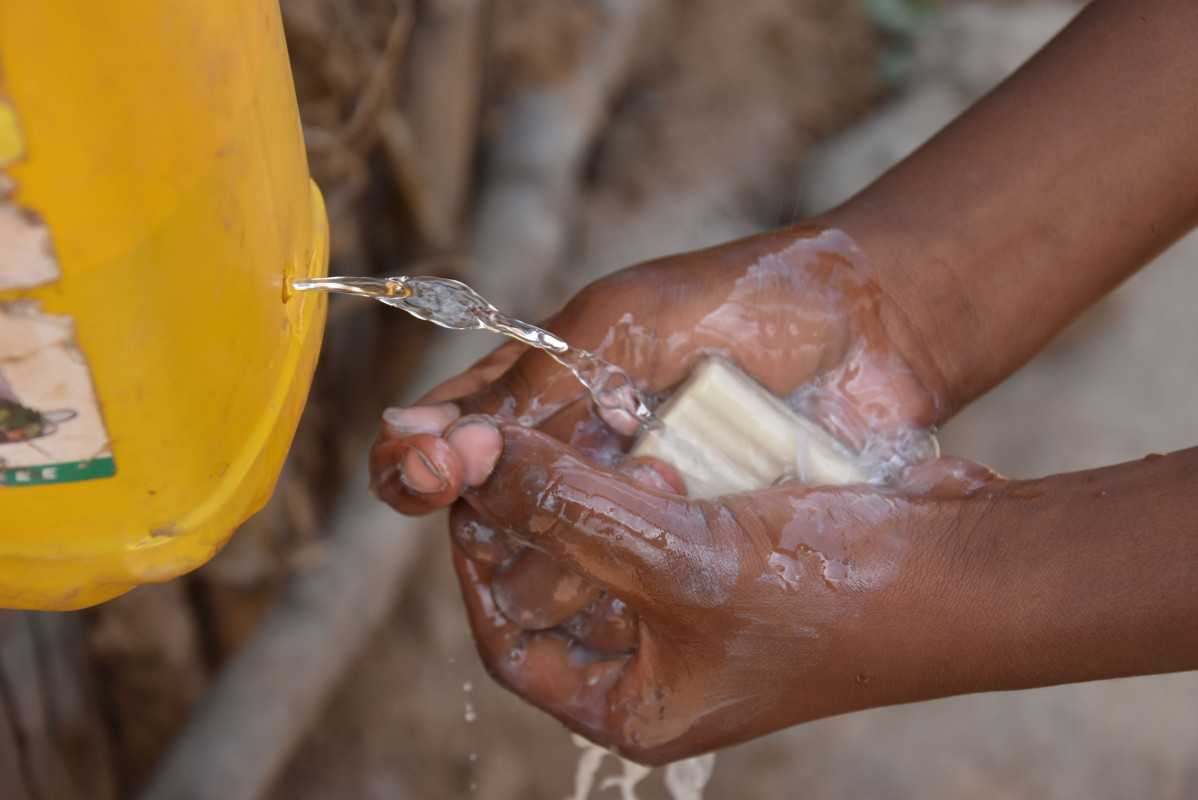
Aid for Areas Afflicted by Drought
More strenuous water collection results in the lack of time to focus on other activities (e.g. class attendance of pupils and teachers too is lower than before), as well as reduction in average water consumption, from 15 litres per capita per day to one third of this amount. Due to the lack of hygiene the number of those affected by diarrheal diseases grows; more people are also affected by scabies in this area. The water sources that have not dried up yet are stretched, and first waves of migration in order to reach water occur.
To achieve the first project objective, i.e. improving access to drinking water, the affected areas will be provided with water from tanks, as well as jerry cans, chemicals for water purifications and donkeys. Last but not least, repairs of wells will be carried out. The second project objective, i.e. improvement of hygiene practices and better management of water sources, will be reached through awareness rising on hygiene and sanitation, trainings for water committees and via distribution of soap and medication.
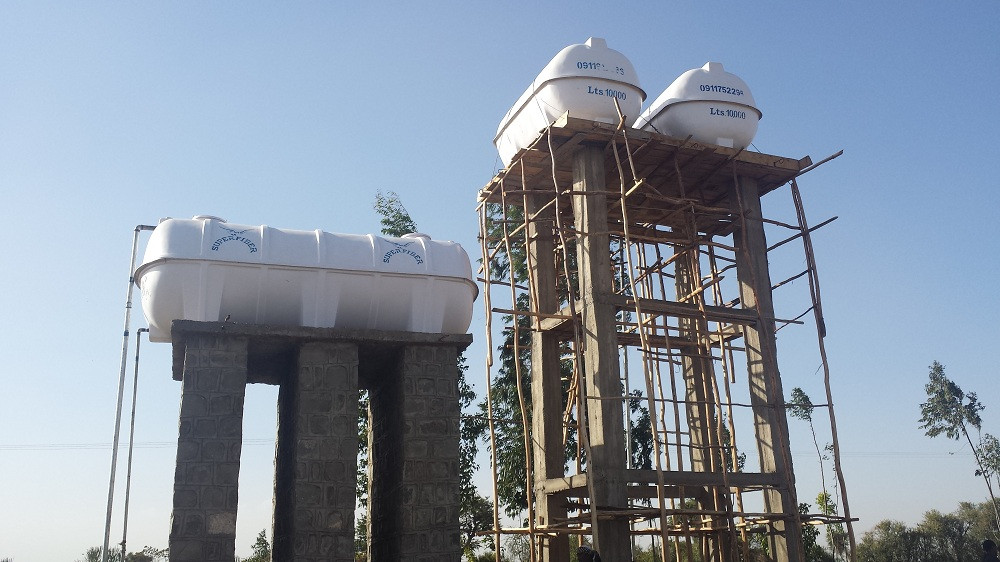
Battle with Current Water and Food Shortages
Next to increasing the distance and time for supplying drinking water (which is usually done at the expense of family or school, in case of schoolchildren), lack of water also negatively affects hygiene habits which are then the cause of diarrheal diseases. These factors, together with a poor harvest caused by the drought, then lead to malnutrition of the population.
This project thus focuses on rehabilitation of existing water schemes and water supply systems as well as on establishing new water schemes, promoting good hygiene habits, distributing materials for repairs of the houses damaged by fires, distributing food crops, seeds and fertilizers. Last but not least, the project aims at providing trainings introducing best practices in the area of agriculture.
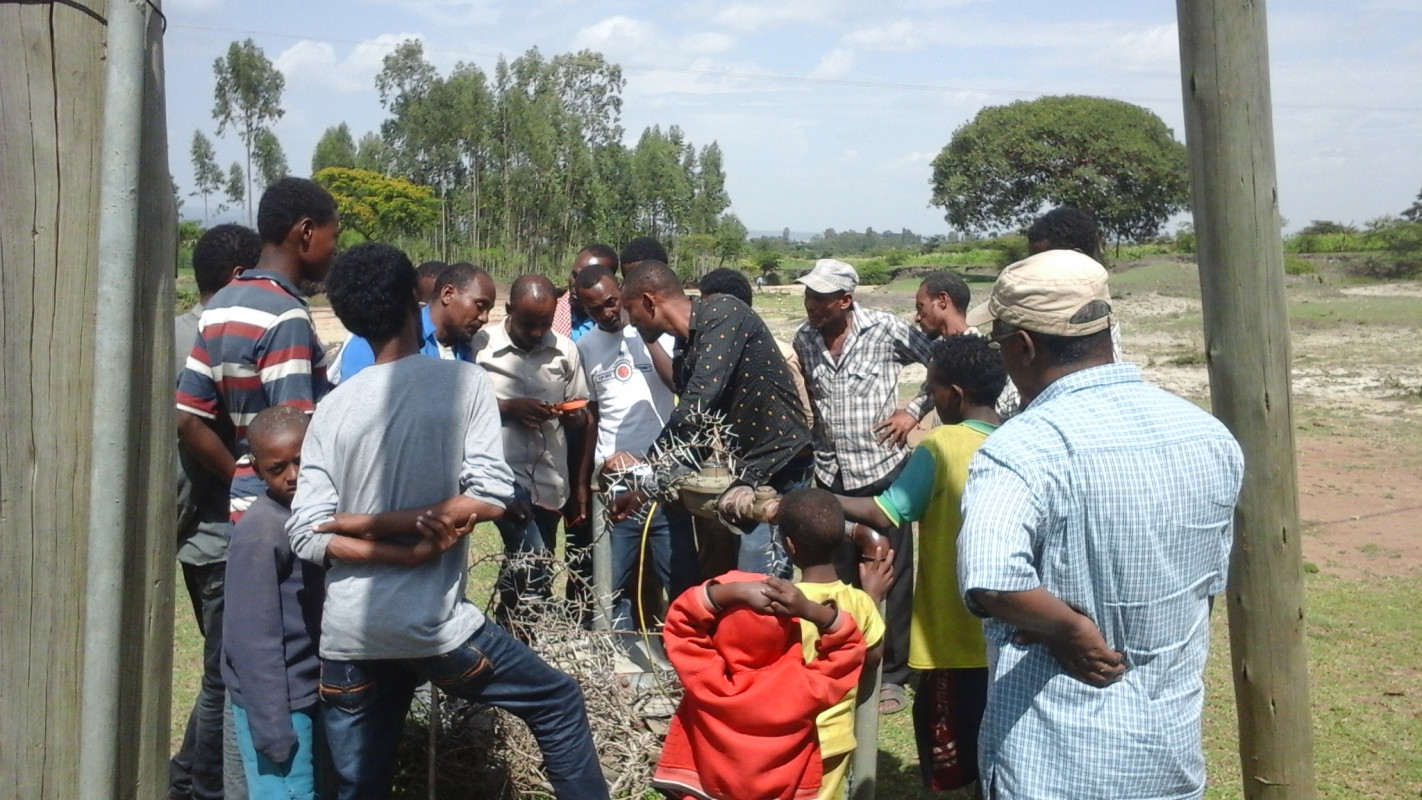
Improvement of Vocational Education in the Field of Water Scheme Management
The project therefore aims at improving the quality of vocational education at this college, especially the Electro-mechanic course. Renovation and modernization of the classrooms as well as new equipment for training and provided trainings for trainers improve quality of education at the Hawassa Polytechnic College. The project also focuses on experience sharing between the college and the technical staff of the water sector at district/woreda levels.
Next to the inclusion of practical experience into the curriculum, the emphasis is placed on addressing skill gaps of the technicians of water schemes at both the woreda and community levels.
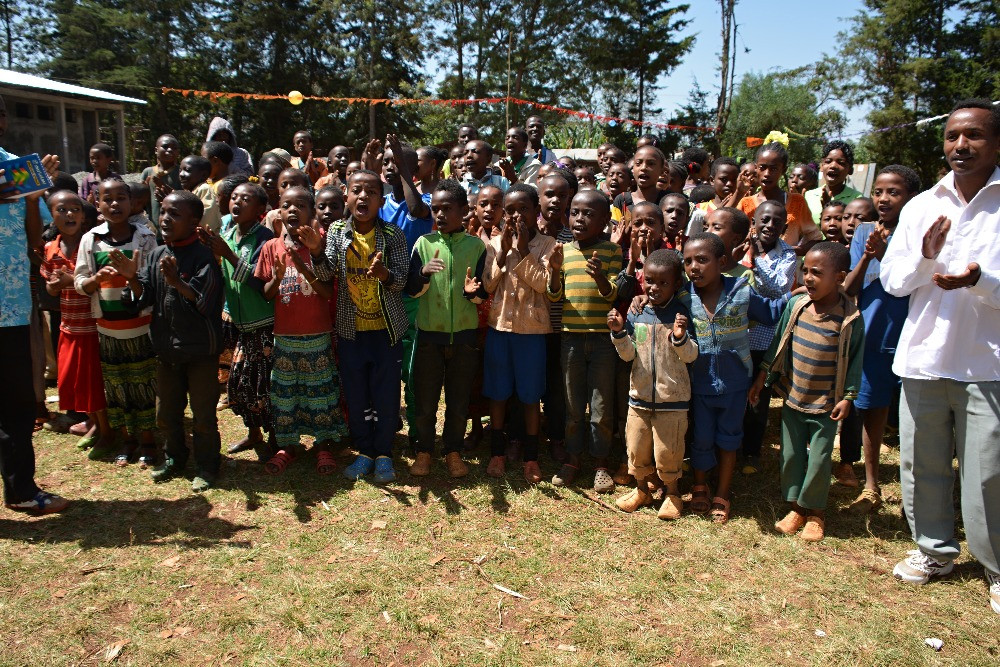
Let’s Build a School in Mokonisa
In 2015, construction of a new school with 4 classrooms started in the village of Mokonisa. During single-shift operation the school will be attended by 200 pupils and 6 teachers. Given the large number of school children in the selected area, the double-shift operation will be run in the school, enabling education to 400 pupils.
Next to the construction of four classes and the offices, the project also aims at building latrines and water catchment systems. The school has also been equipped with 100 school desks and 200 chairs, boards, furniture for office rooms and school supplies. Moreover, teachers have been provided with trainings on the modern teaching methods.
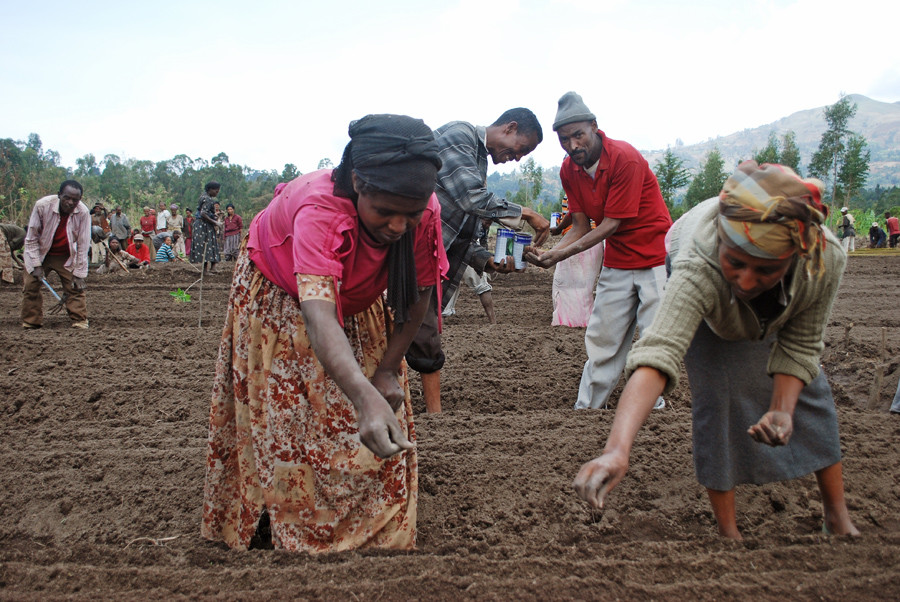
Modernisation of agricultural technologies
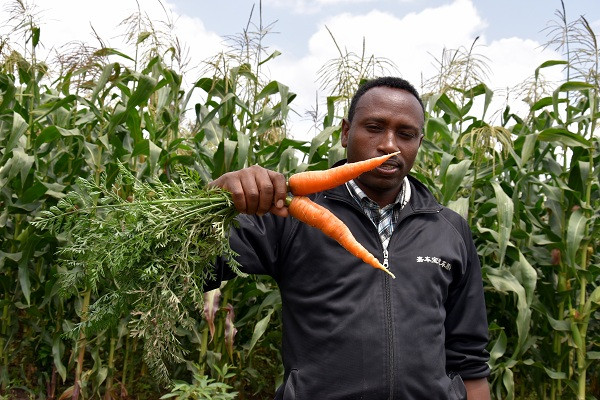
Support of Agricultural Advisory Services
Technical support: PIN creates demonstration fields in every farmer training centre. Their purpose is to enable introduction of different types of nutritionally rich crops and demonstration of innovative farming methods. Among other things, farmer centres facilitate experience sharing between training centres and are also used for training of staff to be able to provide advisory services and guidance related to farming. The training also focuses on improving the communication skills of development agents as well as on production and active use of visual teaching materials.
Material equipment: PIN has been constructing facilities (latrines, water tanks, drip irrigation systems, storages) and providing furnishings and equipment (office furniture, educational materials, work equipment, means of transport, agricultural implements and machinery). These steps result in improved working conditions of FTCs and motivation of advisory staff to responsibly fulfil their role in providing support for local farmers.
Management: In order for the agricultural advisory services to be continual, the farmer training centres must be financially sustainable. PIN thus provides training centres with guidance in terms of development of their “business plans”.
The project is to provide support to the poorest farmers. PIN ensures that even the poorest of the community have access to improved training services. These households are also provided with direct support in the form of agricultural inputs and livestock. PIN also establishes informal groups for the most vulnerable women working in agricultural sector, organizes business skills trainings and promotes experience sharing within the group and mutual support in addressing social and economic issues.
In Gedeo and Sidama zones, 36 development agents and 240 model farmers in total received direct support from the project activities while more than 1,000 ordinary farmers benefited from the project indirectly. Direct support from the project implemented in the Alaba district was provided for 20 development agents, 1,200 ordinary farmers and 200 most vulnerable women working in agriculture. The same project indirectly supported 2,828 households with more than 22,000 members.
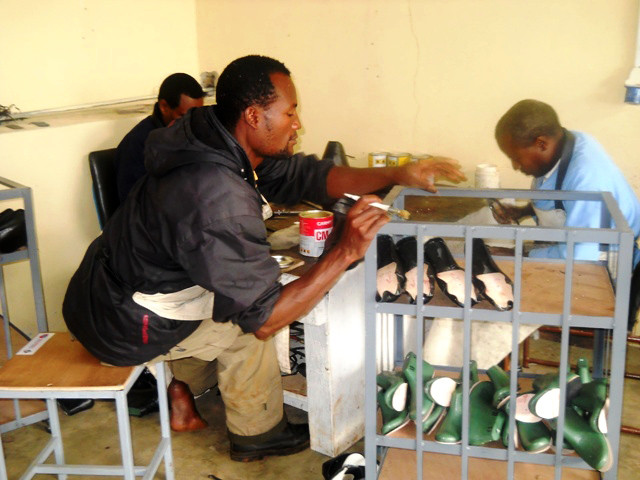
Support of Apprenticeship in Leather Industry
The project is newly focusing on developing a leather education program at Hawassa Polytechnic College. Renovation of the school premises made the program accessible also to people with disabilities in order to increase their chance to find employment. Thanks to the project funds, classrooms of the two educational institutions (Hawassa Polytechnic College and Research Transfer Centre in Hawassa) are equipped with the new machineries to provide quality education complying with Ethiopian standards. The teachers of both institutions can benefit from trainings and experience sharing sessions.
The support of micro and small enterprises aims to enable the entrepreneurs to gain necessary skills and experience and to increase their chances to access a loan offered by local micro financing institutions, for example. Networking between the successful businesses and the educational institutions as well as the micro enterprises is essential as it enables the students and the small entrepreneurs to gain access to materials and placement opportunities.
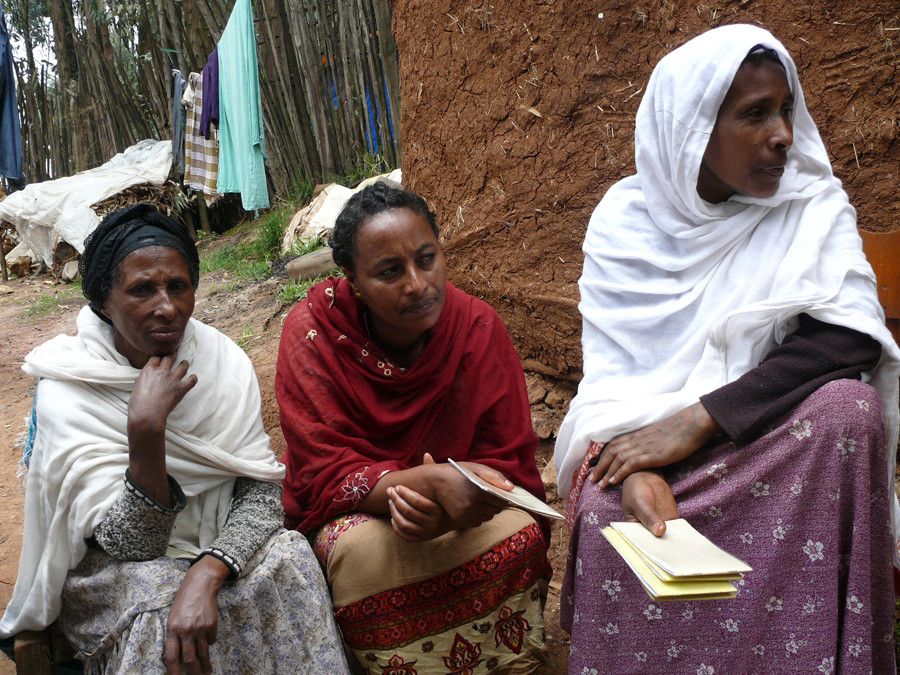
Social Protection of the poorest communities in society
Self-help groups usually consist of about 20 women coming from very poor households in one location and with the help of community and social workers save money together in order to support themselves in their retail business. Thanks to PIN‘s support, these women enjoy the opportunity to participate in various development trainings, which help them to gain self-confidence and the ability to solve problems they face. Successful associations are being grouped into cluster associations and federations, whose representatives are active on the regional and state level and by their engagement with local and federal officials they are involved in the decision-making process. They also advocate for self-help groups being incorporated into a national platform for social protection and other institutions that would further enhance their position.
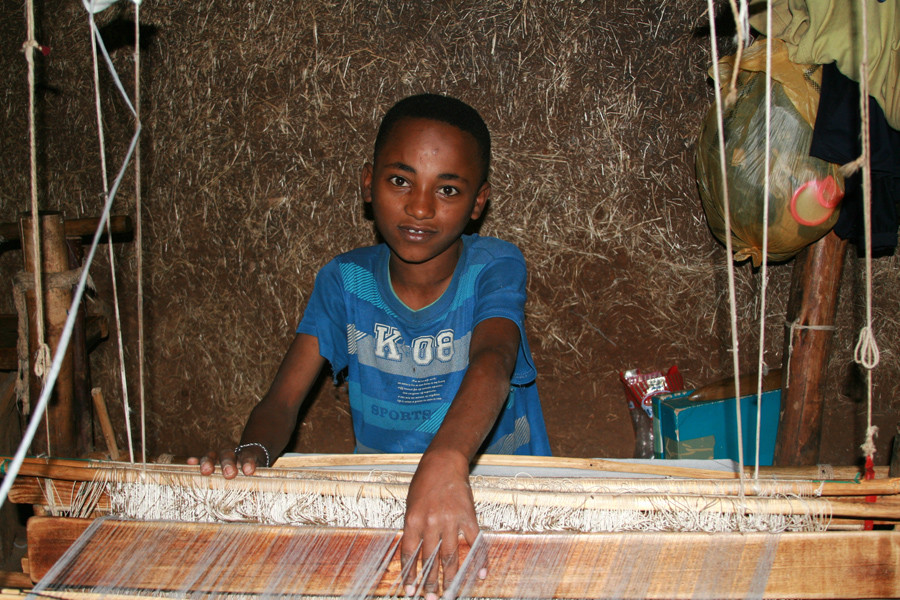
Preventing and Combating Child-trafficking
The PIN organization seeks to increase public awareness on the issue of child trafficking, by focusing on the actual causes and possible consequences in local campaigns through radio, group discussions in the school clubs, by shooting and screening of documentary films and organizing workshops. Another successfully implemented task was the creation of regional database system of child trafficking cases, (this database records data on trafficked children) and was firstly tested at the municipal police in Hawassa. In collaboration with the Ethiopian Ministry of Labour and Social Affairs PIN created a music video referring to this issue, featuring one of the most popular Ethiopian singers of the current times Gossaye Tesfaye.
One way of reducing the volume of child trafficking cases is also streamlining of the process of punishing offenders, who are involved in the negotiations, transportation, harbouring children and facilitation of activities that involve child abuse. PIN activities not only focused on the actual help to victims’ families and vulnerable communities, but also focused on establishing of a cooperation on the state level, as PIN tries to appeal to officials responsible for the creation and revision of laws and regulations to fulfil its role in improving the child protection system.
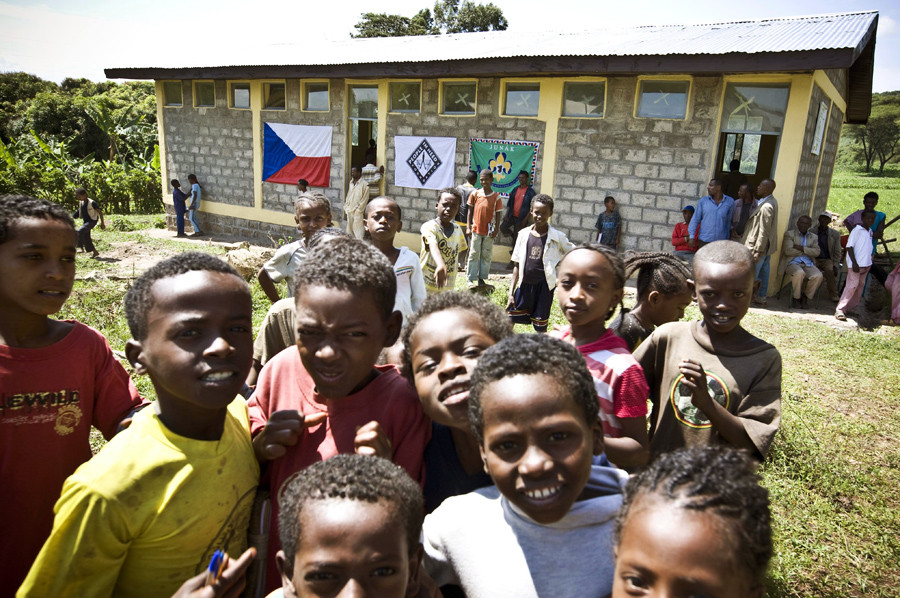
Construction, Renovation and Schools Equipment
Through these campaigns PIN is firstly trying to raise public awareness in the Czech Republic about the problems of the developing world. Secondly, in doing so, PIN aims to actually increase the accessibility of primary education in Ethiopia. In the city of Alaba, PIN built a model school in 2004. In addition to classrooms and administrative buildings, the school consists of a school library and laboratory. This is unlike any public schools, where one class is attended by more than a hundred pupils, whereas in Alaba’s model school, classes are attended by thirty students in one class only. All teachers have undertaken intensive training in modern teaching methods provided by two Czech experts. The training focused on an individual approach to pupil learning instead of the usual over-theorized emphasis on knowledge. The school also provides children with afternoon leisure activities and acts as the center of life to the whole community. After completion of the project, the school was transferred under the jurisdiction of the district office, which currently operates it.
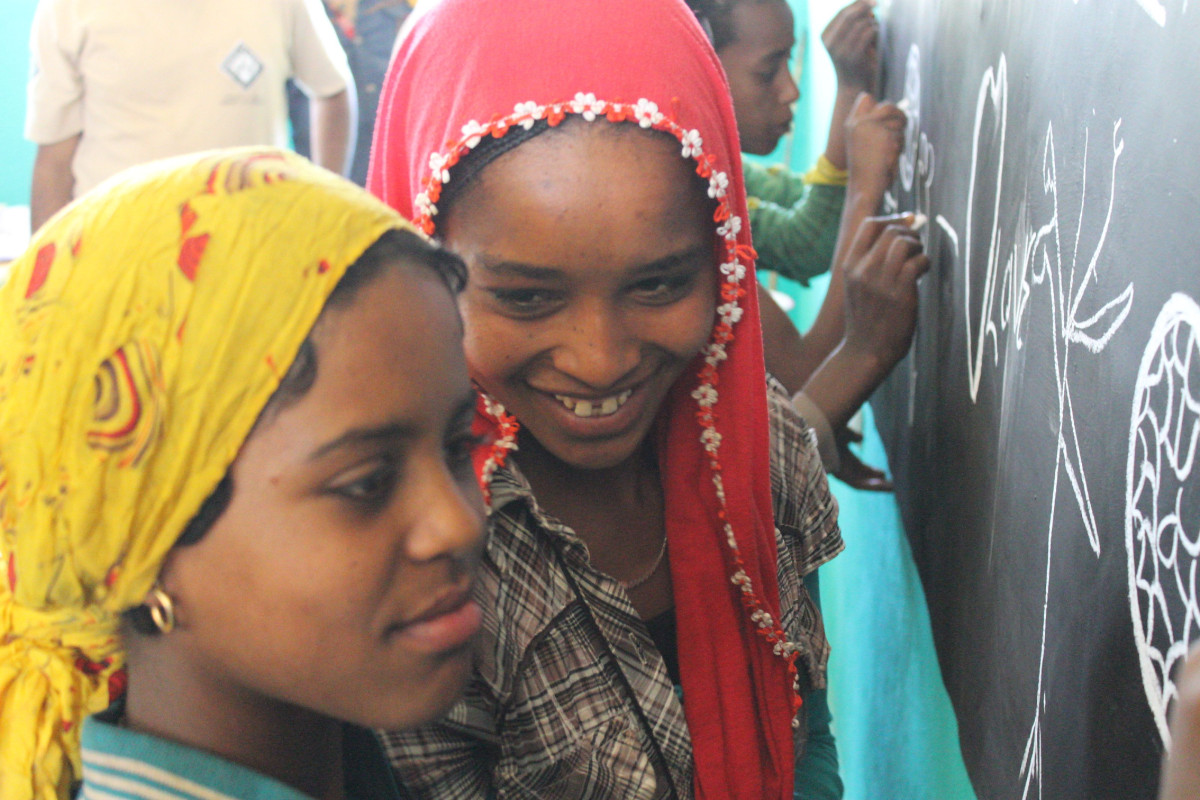
Implementation of advanced education methods
In order to ensure sustainable use of the modern teaching methods by teachers, it is crucial they have active support from the school management, inspectors and education offices. In order to reach that, the project team cooperates with the local authorities to create a system for evaluating the quality of education and subsequent school certification “LEAD” which will be incorporated into the school monitoring activities carried out by the education offices.
The teachers of the schools involved in the project are provided with trainings on how to apply the modern teaching methods, in which school inspectors are invited to take part. Moreover, the teachers will be supported by school clusters which will supply them with consultation and suitable materials and which will facilitate experience sharing among the teachers and provide information to the community members.
Within the project, the cooperation among colleges of teacher education is also being strengthened, especially in terms of encouraging students to incorporate the modern teaching methods into their practicum.
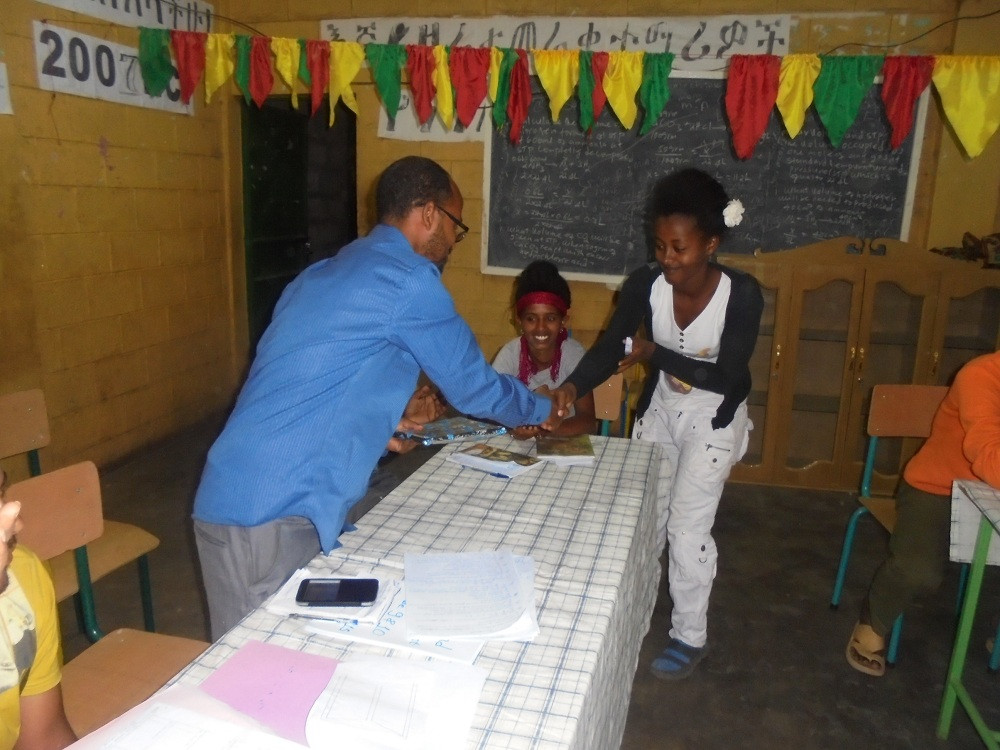
Education Support for Orphans
The management of this Secondary Boarding School in Hawassa was passed onto the local authorities in June 2006. The accommodation and catering section has been managed by a local based NGO Shiny Day Social Services Association, set up by People in Need.
During 2015-2017 support was given to 40 children a year. Next to the standard curriculum and practical trainings, the children were provided with food, school and hygiene supplies, psychological consultations and health care as well as medication, if needed. The children could also make use of extra tutoring classes, and were regularly invited to take part in various contests to increase their motivation to study. The students themselves took part in organization of various events, e.g. recently organized Talent Show or dance and fashion shows during the graduation celebration.
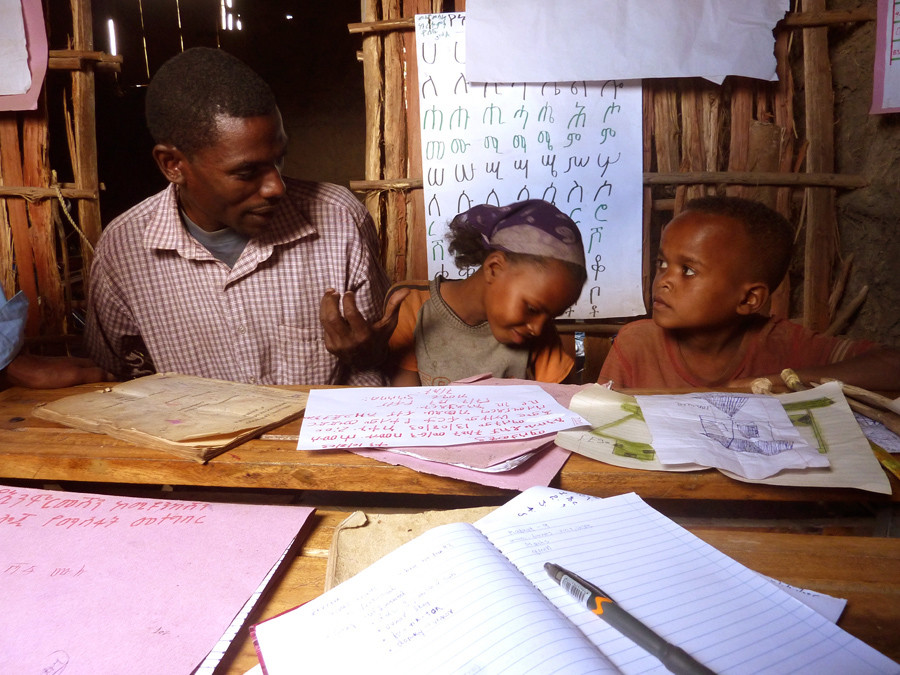
Modernization of the education system
People in Need also supports cluster schools, which serve as support centres for the other schools in the area. PIN helps to provide the necessary equipment and teacher training to the cluster schools, such as the implementation of modern teaching methods in the classroom. Higher pedagogical schools are now newly included into the program, so that the modern teaching methods taught will not only be used by the current teachers but also the future ones. Especially for the future generation of teachers; special training modules will be created for each subject. The implementation of modern teaching methods will be strengthened through workshops at regional and federal level.




